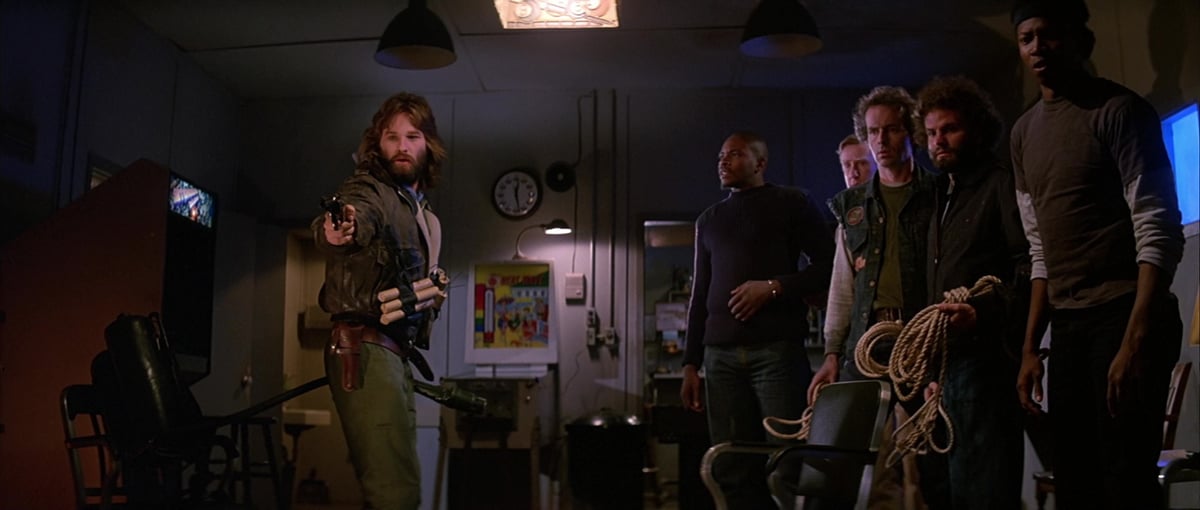My favorite movies
December 10, 2023
I own a few thousand movies. I started my collection in the 90s as a teenager, and for a time I bought a DVD every week. In 2002 I moved to Los Angeles and briefly thought I might want to be a screenwriter. Instead of writing scripts, I built a collection website for others to catalog their movie and music collections. Guzzlefish (yes, I really named it that!) is no longer around, but the site was popular enough I sold it to CNET in 2004 and moved to San Francisco. So ended my movie career dreams.
It’s hard to estimate how many movies I’ve seen over the years. When I was single, I went to the theater at least twice a week. Most weekends involved a trip to Blockbuster where I’d pick up four or five movies for the weekend. I enjoy all genres from all time periods. My wife Nicole was a film minor in college and there’s no better person to chat up after a screening.
Once we moved to Annapolis and we had the room I fulfilled a childhood dream of building a home theater in my basement. We sit down most Fridays with a glass of wine, our dogs close by, and throw on a new flick. Occasionally one of us will say “OMG you’ve never seen that movie before?” and surprise each other with something obscure one of us missed.
Here are 25 of my favorites, in alphabetical order. Why 25? It was a size I felt comfortable pairing down to. It would be hard to remove anything more. These aren’t necessarily the best movies I’ve ever seen. They are the ones I am most excited to watch again, and are the movies I’m quickest to suggest to others. Cheating a bit, I’ve also listed an alternate movie alongside each list item for some extra wiggle room.
24 Hour Party People
- Micheal Winterbottom — 2002
- You might also like Trainspotting
I came to 24 Hour Party People already as a big fan of the Manchester / Factory sound of the 80s. I didn’t really know much of the story behind the music, and after seeing the movie, I’m not sure I would trust it as an accurate source. There’s a scene where some of the real individuals show up to remind us as much, breaking the 4th wall to proclaim “I definitely don’t remember this happening”. Most music biographies are overly stuffy and too reverential of their source material. 24 Hour Party People knows that it’s the vibe that maters. It isn’t afraid to tear down its heros with a well-timed joke.
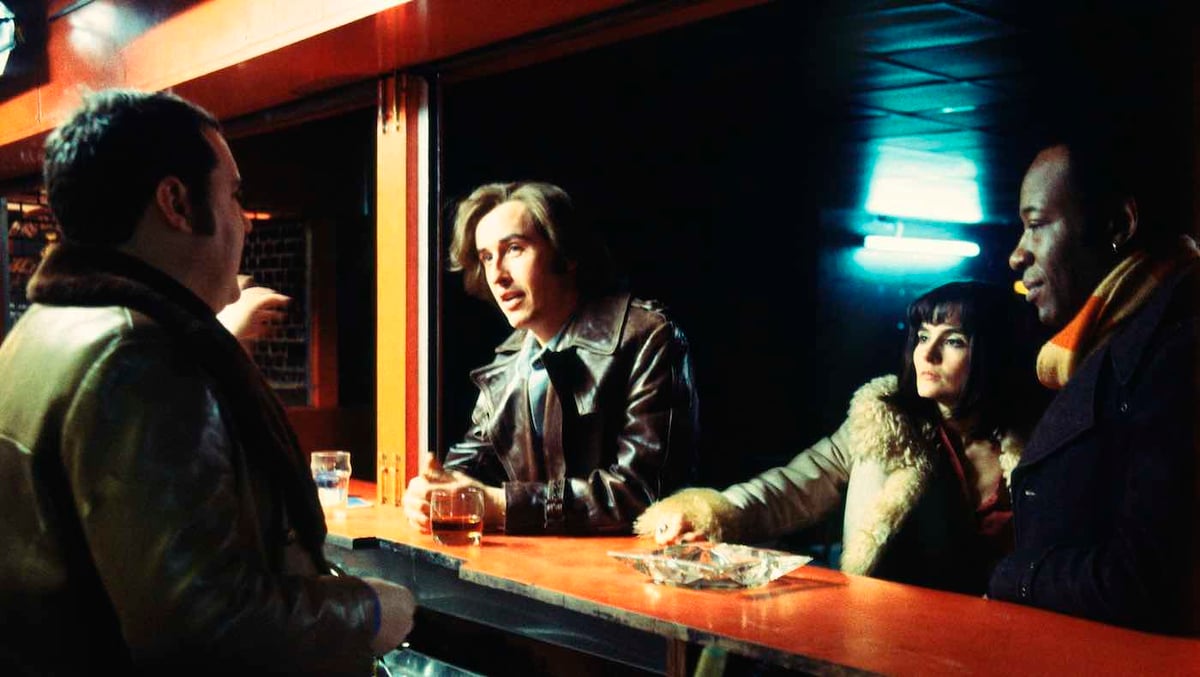
Alien
- Ridley Scott — 1979
- You might also like Blade Runner
Ripley is my favorite Final Girl. The real star of the show of Alien is the set design of The Nostromo. Every detail of the ship, down to font usage and logos, is crafted with purpose. The Nostromo feels industrial, clunky, but somehow still futuristic. I think it’s one of the rare science fiction films that seems to get better with age. The older terminal interfaces and assorted technology feel purposefully ancient, as if the crew of the Nostromo is just making do with what they’ve been given by the corporation. Ridley Scott has a talent for this, and a similar thing can be said of his other classic Blade Runner. Between the two, I find Alien is the more watchable movie, and it’s a tense ride till the credits close.

Amadeus
- Milos Forman — 1984
- You might also like One Flew Over the Cuckcoo’s Nest
Who hasn’t felt envious of someone else’s talent? The best bits of Amadeus are when Salieri sits alone in recognition of Mozart’s abilities, as only he can understand them. There’s the fun scene where Salieri must transcribe bits of Requiem as Mozart composes it on the fly. He can’t keep up, as the music is beyond him. An utterly crushing movie played expertly by F. Murray Abraham. It was a tough call choosing between this movie and director Milos Forman’s other classic One Flew over the Cuckoo’s Nest. I went with Amadeus because I can’t think of another movie that successfully creates sympathy in such a pathetic, cowardly lead character. It pulls this off with a clever device, letting that character be the witness to the hero, who may be just as pathetic themselves.
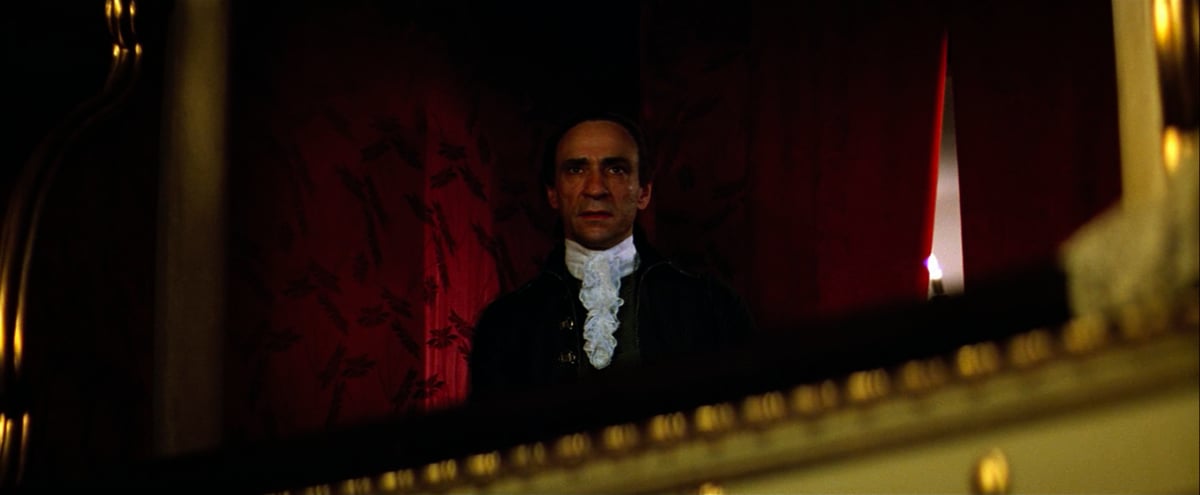
Being There
- Hal Ashby — 1979
- You might also like In the Loop
I love Peter Sellers. His other films The Party or Dr. Strangelove could easily fit on this list. Being There was made closer to the end of his career and uses all of his talent. Can a buffoon elevate themselves to the highest levels of power by doing no more than wearing the right clothes, having the right accent, and speaking to the world in terms of gardening metaphors? Some movies ask for suspension of belief, Being There makes an entire movie based on that concept. The trick of Being There, like all great satire, is that it doesn’t feel like a comedy. Perhaps the characters are themselves idiot, but even that feels worse. The audience needs to make it to the catharsis of the bloopers in the end credits to remind themselves that yes, this is all just a big joke… maybe.
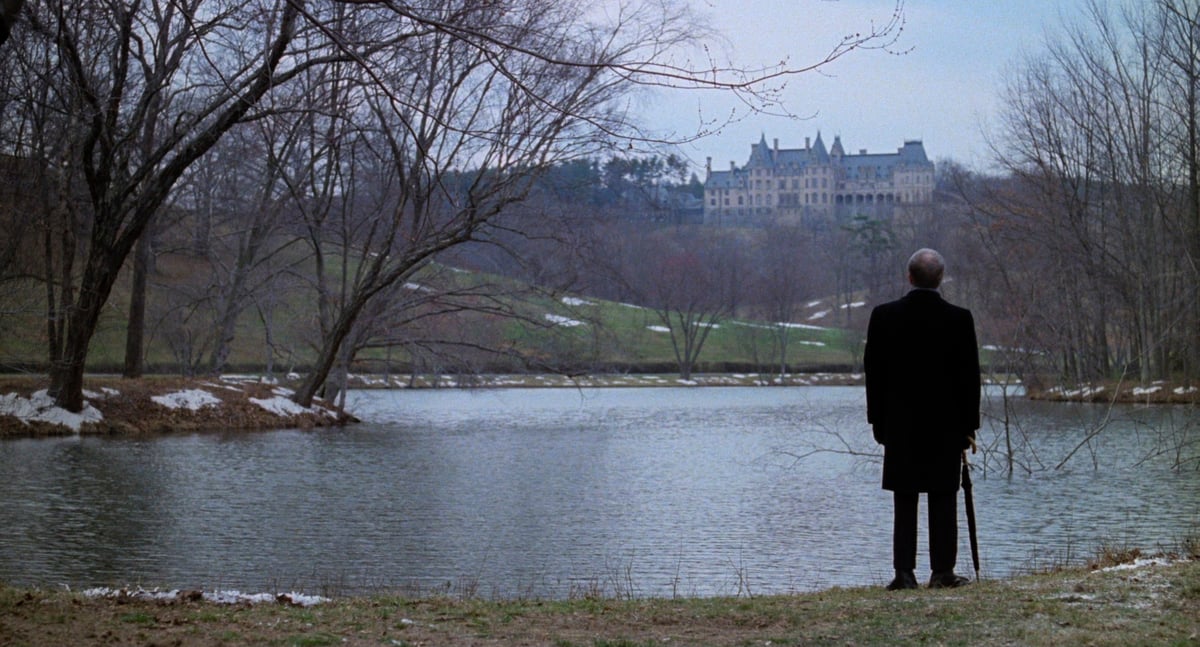
Children of Men
- Alfonso Cuarón — 2006
- You might also like Pleasantville
Flip flops. That’s what comes to mind whenever I think about Children of Men, the dystopian masterpiece by Alfonso Cuarón. How would the world react to a great calamity? How would individuals react differently? What would actually matter if the world was going to end anyway? The dense world of Children of Men answers this by telling its story through a skeptic who seems angered by the thought of hope. If only he can make it to the end of the movie in those flip flops.
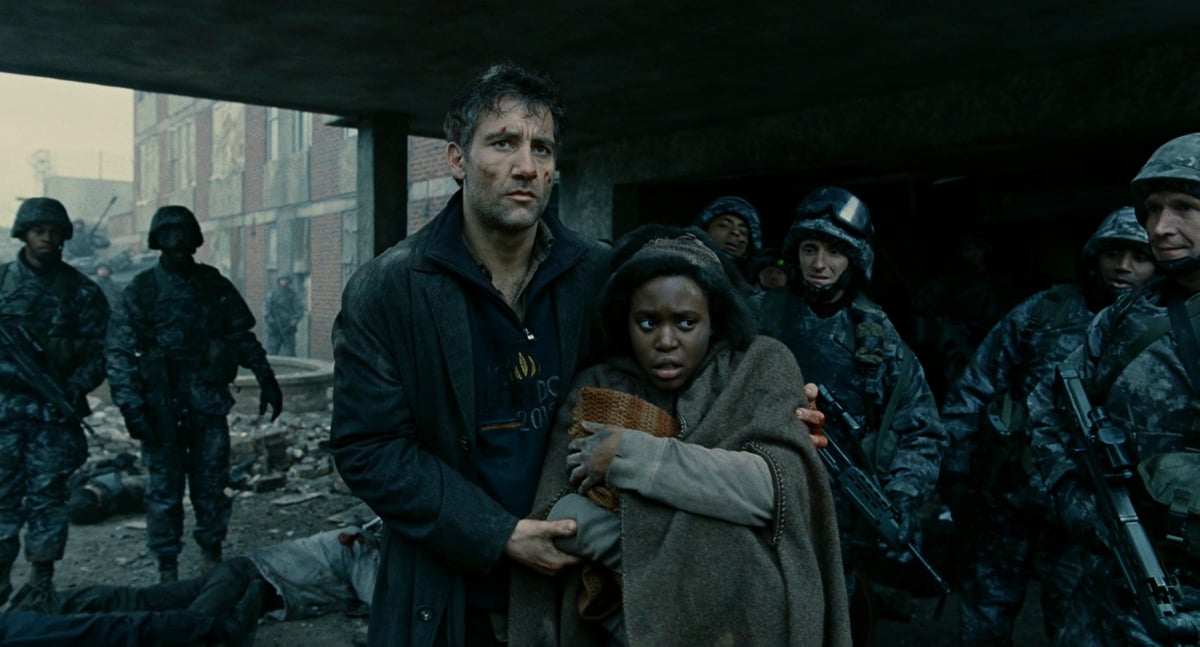
Cinema Paradiso
- Giuseppe Tornatore — 1988
- You might also like Big Fish
For anyone that loves movies, Cinema Paradiso is an easy addition. Its coming of age tale of a boy who grows up in a movie theater will feel familiar to those who’ve spent too many hours staring at a screen. Although there is an expanded edition that adds some additional scenes, I prefer the original version for its tighter storytelling. Cinema Paridiso, like life, is filled with side characters that leave an indelible impression. The small Italian town is the real story and Toto is simply one product of it.
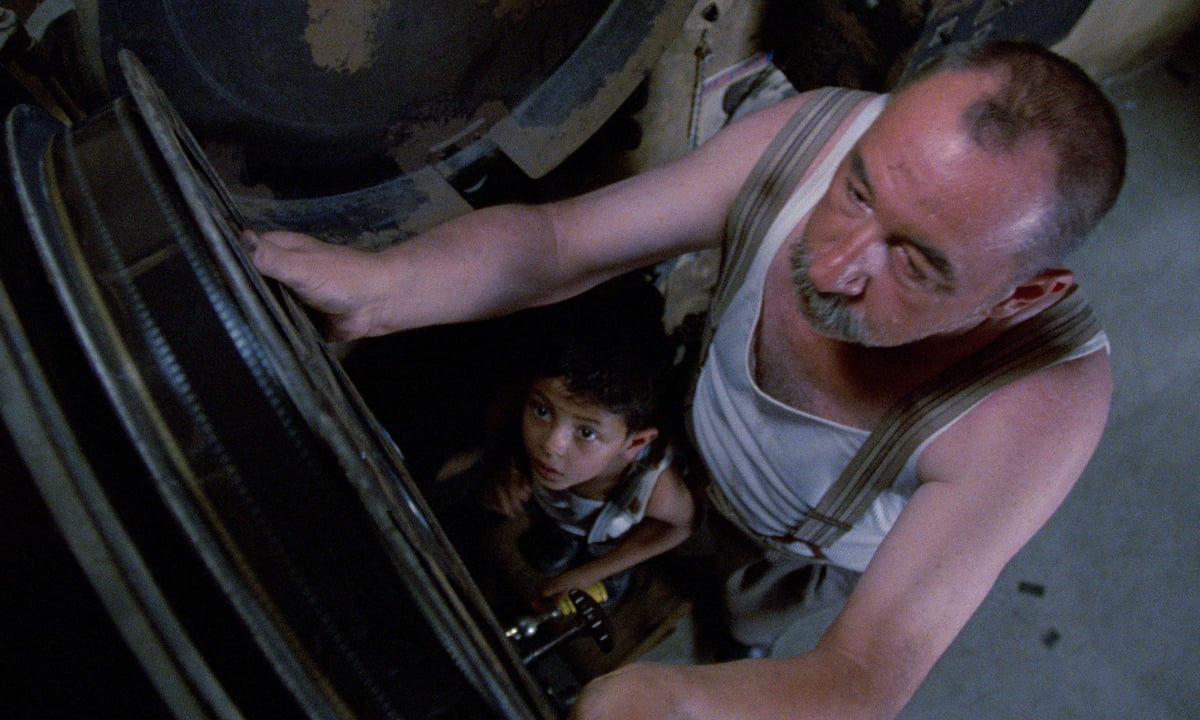
Conan the Barbarian
- John Milus — 1982
- You might also like Mad Max: Fury Road
Admitted comfort food, Conan the Barbarian remains my favorite pure action film. With a light script from Oliver Stone, the film knows that adventure tales are only as good as their villian, and James Earle Jones finally gets to take off the mask and be the bad guy he was meant to be. Conan succeeds for its simplicity and its score, a thumping background filled with timpani drums that would find its way into the trailers for every action movie for decades to come.
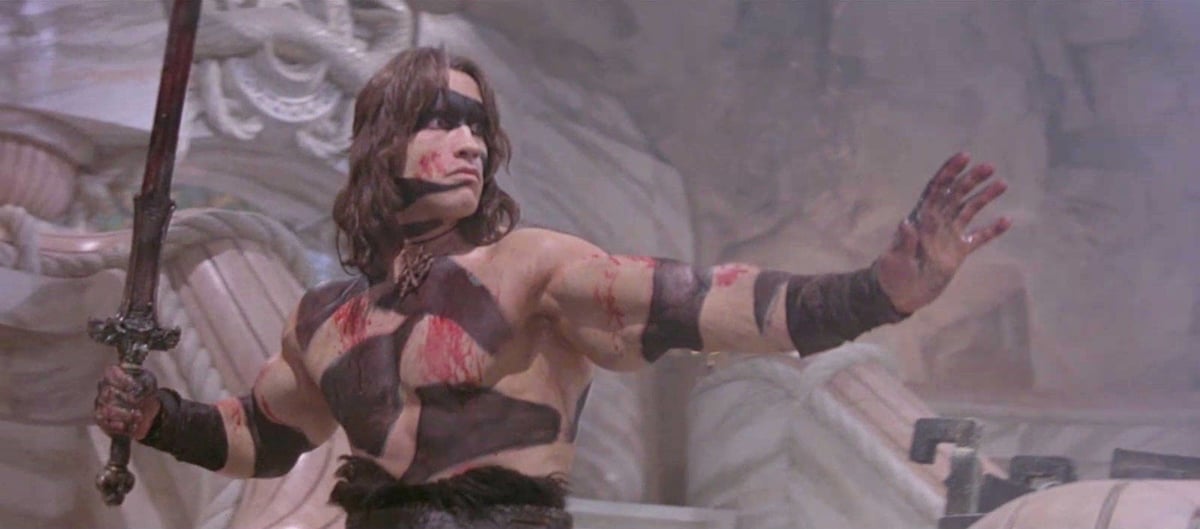
Das Boot
- Wolfgang Petersen — 1981
- You might also like Apocalypse Now
I can’t think of a film where you feel as much a participant in the moment to moment action than Das Boot. There are several editions available, and I prefer the “Director’s Cut” version if you can find it. The longer run time helps add to the fatigue you feel as the crew makes their way home. Most war movies tell very simple good-guy / bad-guy stories. Das Boot isn’t so simple, and like good American Vietnam cinema revels in the camaraderie and routine of military life more than the actual geo-politics that require them. It’s a movie best in its quiet moments when you wait, fearfully, for what might happen next.
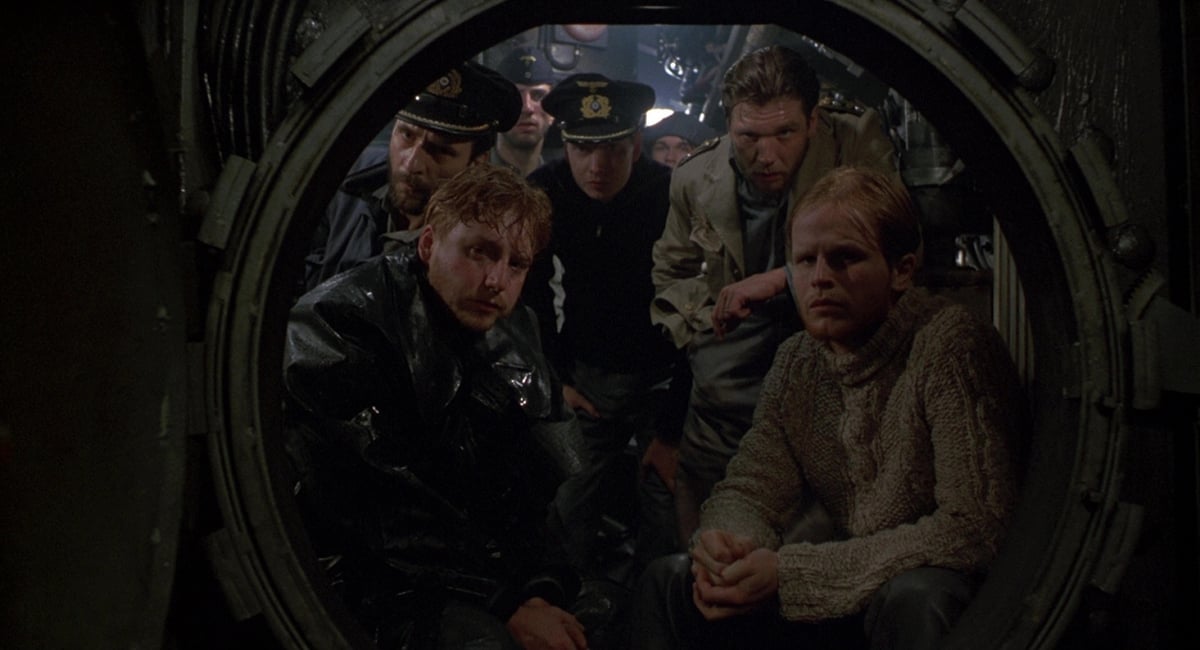
Do the Right Thing
- Spike Lee — 1989
- You might also like Boyz n the Hood
There was a period of time in the late 80s, early 90s where there wasn’t a better American director than Spike Lee. Do the Right Thing is Lee’s pinnacle and is an utterly beautifully shot film that berates you with its visual palette. It tells an even, multi-perspective story on race in America on one hot day in Bed-Stuy. The small scene-breaks where the characters talk directly to the camera always get me, and is a great device to make you feel for each and every person in this huge, talented cast.
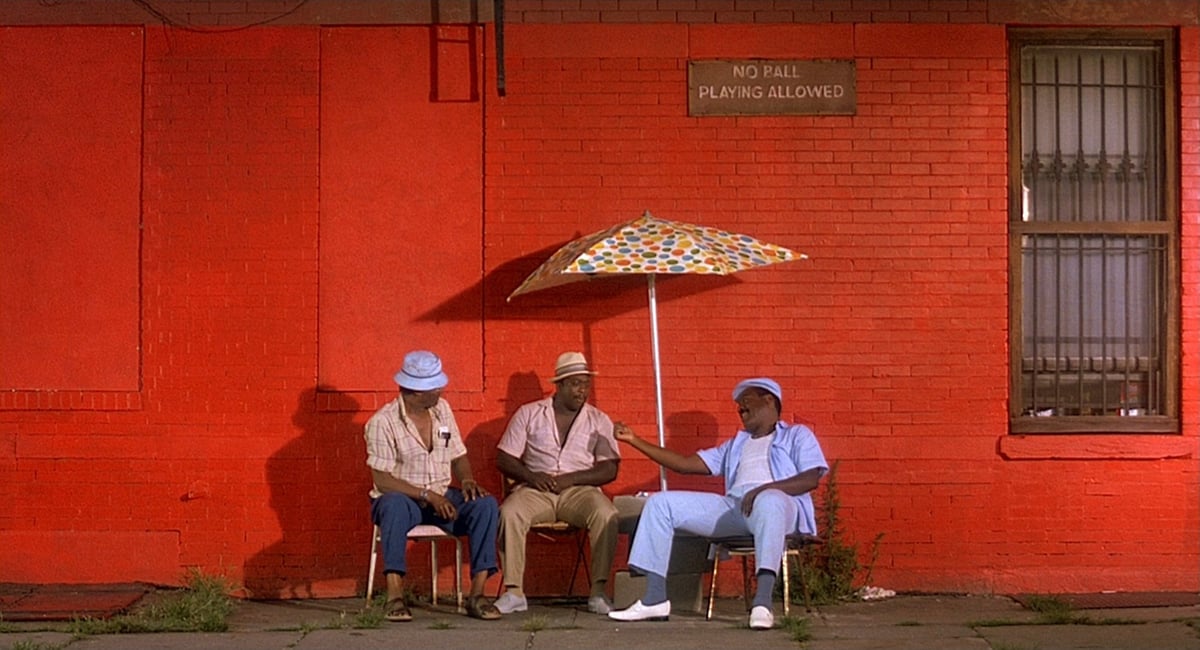
Excalibur
- John Boorman — 1981
- You might also like Kingdom of Heaven
Fantasy is my primary genre expertise. Most genre origins aren’t as strong as their progeny, but the classic Arthurian tale with Merlin, Lancelot, Percival and all the rest still works. Boorman’s Excalibur sticks close to the original legend and put all of its budget against its costume and set design. Excalibur succeeds because it believes in its source material and doesn’t mind being a little campy if it makes heroes along the way. I get chills every time Arthur rolls through the Cherry Blossums to O Fortuna. “Guards, Knights, Squires… prepare for battle”. Every modern retelling fails because it tries to tweak the source to make it more believable. Arthur and Merlin are best only in the land of dreams and the impossible.
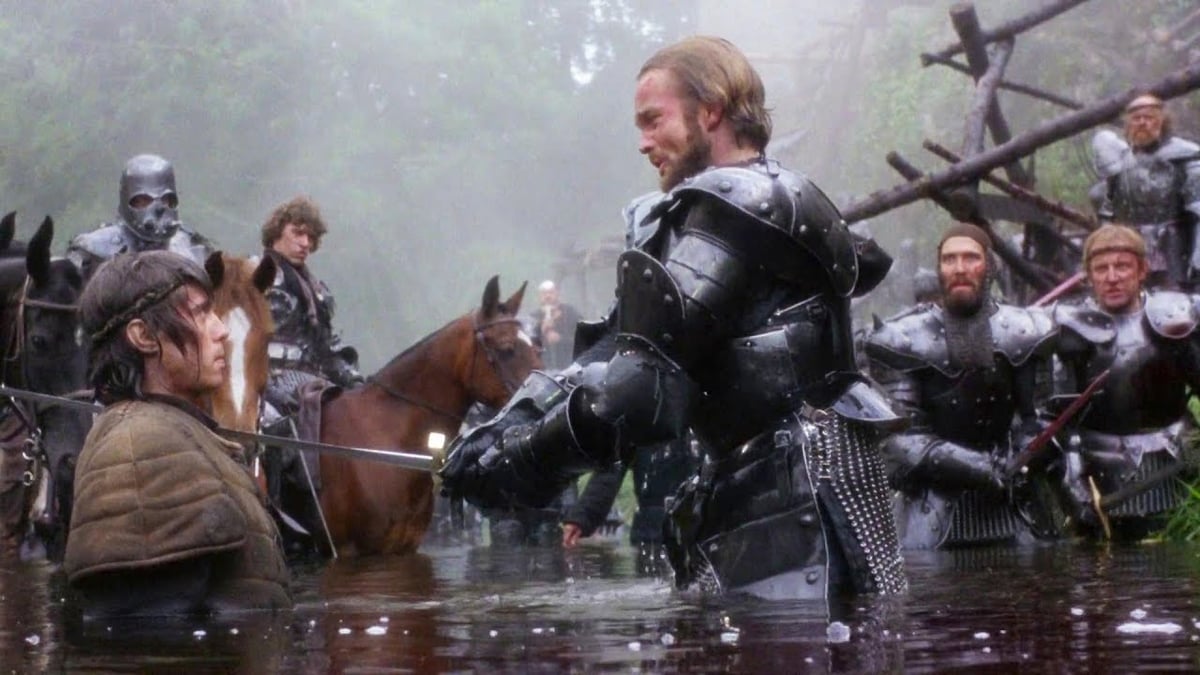
Gattaca
- Andrew Niccol — 1994
- You might also like The Shawshank Redemption
I love redemption stories and there are multiple films on this list that carry that arc. Gattaca instead asks a different question: how can a person redeem the body they were born into? I love the parallel story lines of the brothers and the inspectors. There are so many small details in Gattaca that were really smart for its time. Note how all the cars are electric, and actually sound like the electric cars that would come much later.
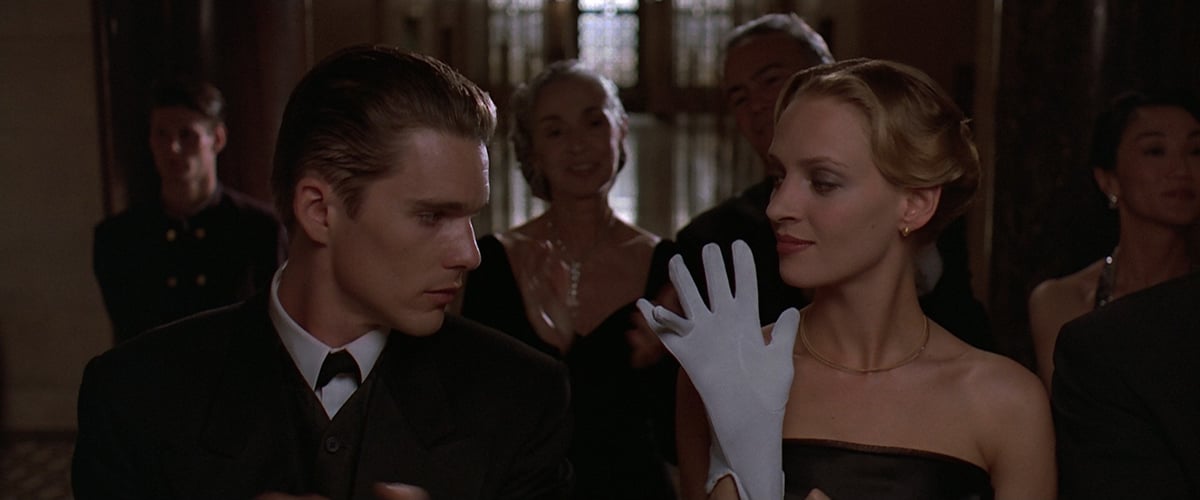
The Godfather
- Francis Ford Coppola — 1972
- You might also like Goodfellas
I grew up with an Italian-American mother who was part of a very large family. At family gatherings I was typically the only blonde kid in a sea of dozens of dark-haired, brown-eyed cousins. The Godfather hits me on a different level than most. I recognize its Wedding, and its important discussions around a pot of marinara. Inside its houses and restaurants I can smell the garlic in the air. The accuracy of the world sets the stage for the slow burn of the origin of villainy. What justification can we make for behavior when family is involved?
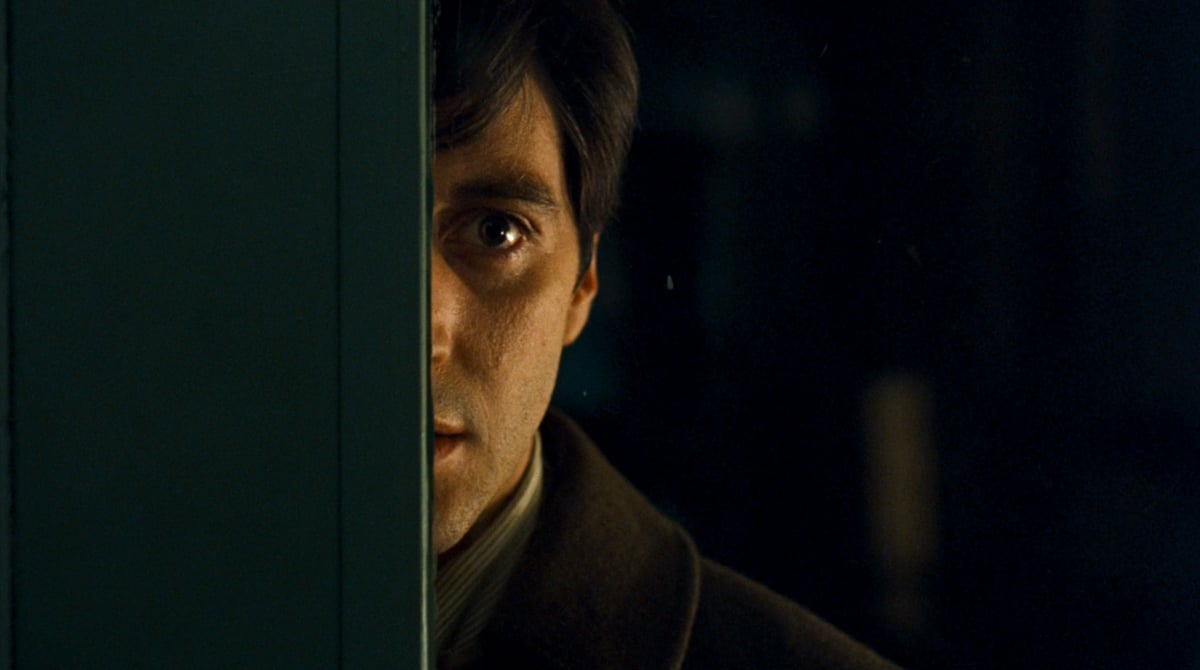
Hail, Caesar!
- Cohen Brothers — 2016
- You might also like The Big Lebowski
It’s impossible to pick a favorite Cohen Brothers movie, and I could easily add four or five to this list. Hail, Caesar! gets the nod because it’s just as funny as anything they’ve ever made and is the most visually dense and interesting of their films. It’s ode to old Hollywood filled with yodeling cowboys and big musical numbers looks as good as the source cinema that inspired them. Hail, Caesar! spins serious pondering with absurdity in a way the duo hasn’t done since The Big Lebowski, and like that film can be rewatched ad nauseam till you find something new to quote or notice. Like other movies about movies on this list, you get as much from it as you can bring in.
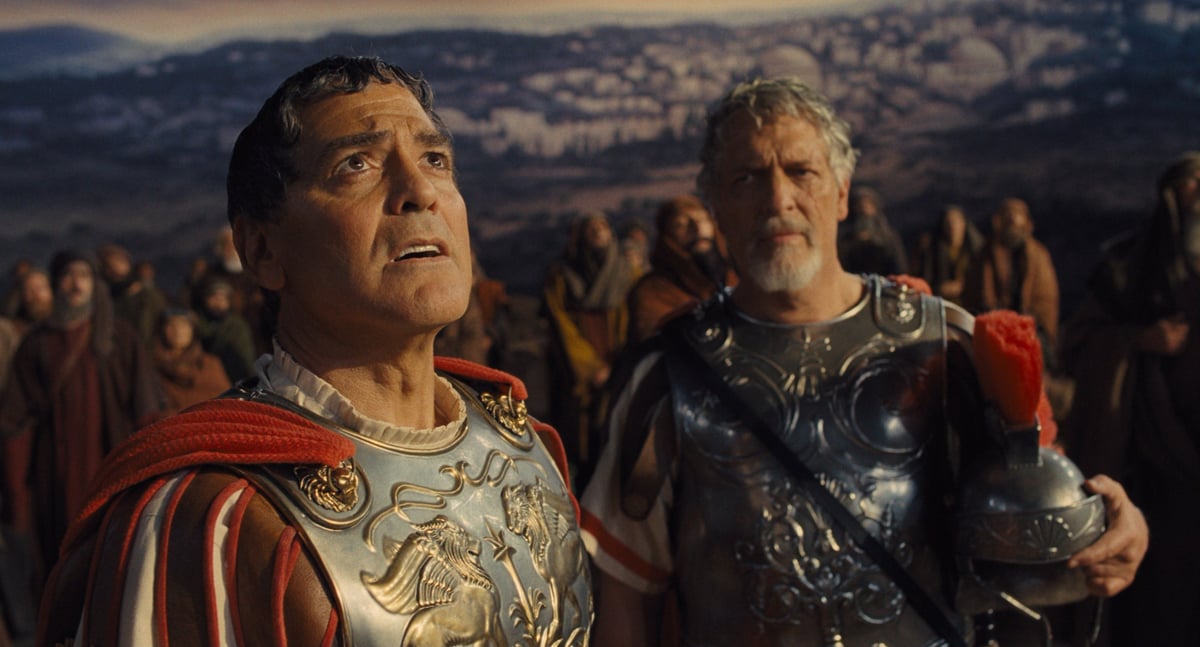
Kicking and Screaming
- Noah Baumbach — 1995
- You might also like The Royal Tennenbaums
Noah Baumbach makes a certain kind of film that attracts people who enjoy Woody Allen films and read classic literature out of insecurity. Kicking and Screaming is Baumbach’s first movie, and it perfectly describes that limbo period between higher education and the workforce. Its ensemble, having lived together for years, develops their own language and repetitive rituals that are so genuine you’ll find yourself quoting them un-ironically to other fans of the movie. I can never talk about Prague without mentioning “Oh I’ve been to Prague” in the same inside-joke delivery that its characters share.
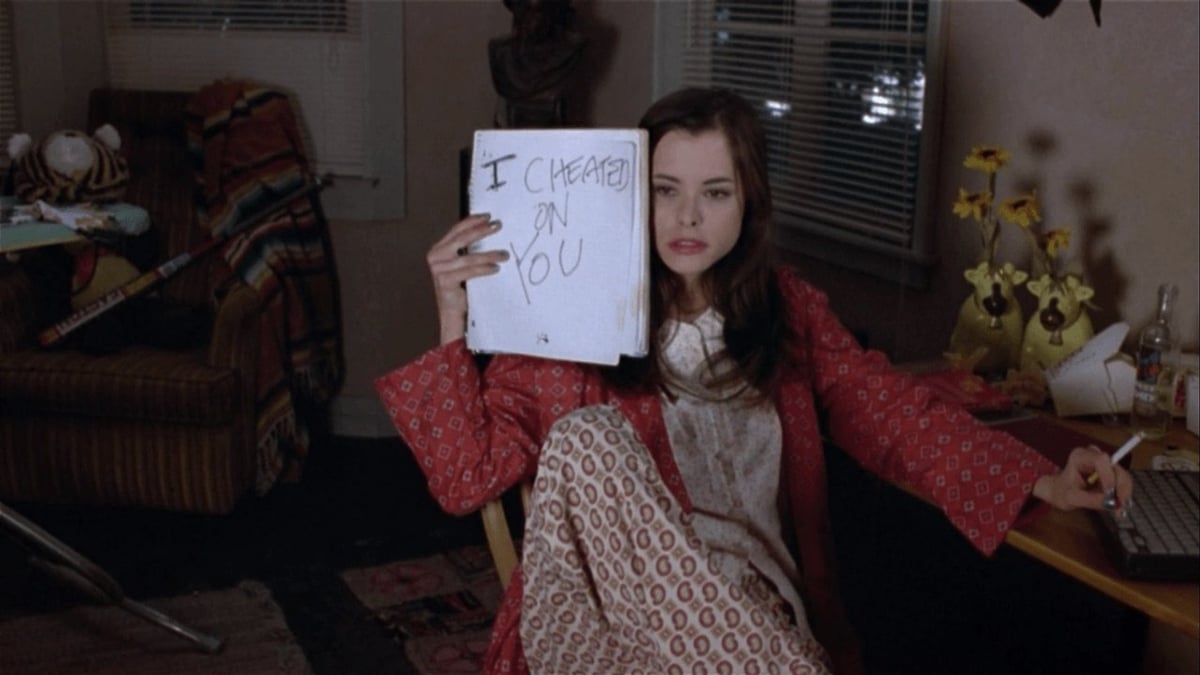
Monty Python’s Life of Brian
- Terry Jones — 1976
- You might also like Airplane!
Pressed to pick, Eric Idle is my favorite comedic actor. The dry, sardonic, no-topic-is-sacred delivery of Monty Python inspires my own dark attempts at humor. Life of Brian is their best film because its comments on politics, religion and organization of any kind is a more thoughtful method than Holy Grail’s dips into absurdity. The screen below perfectly captures the genius of Python. It’s men, playing women, who themselves are playing men doing something only men can do (cast stones). There’s even a strolling merchant willing to sell you the stones to throw.
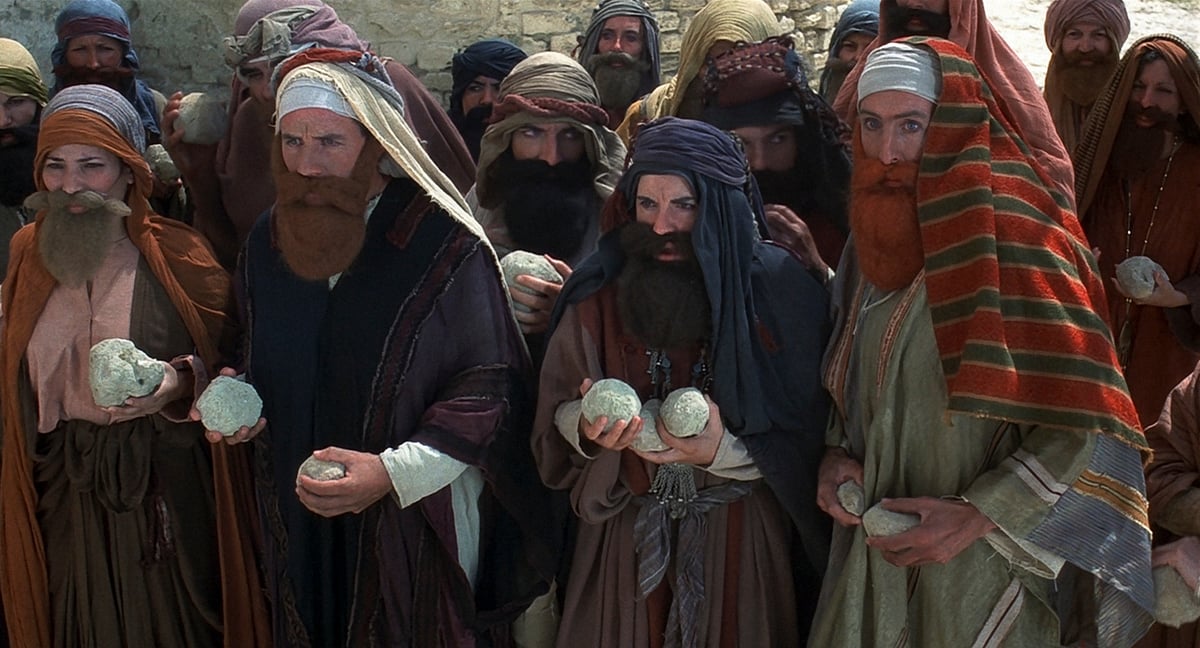
The Master
- Paul Thomas Anderson — 2012
- You might also like Synecdoche, New York
Likely the pick on my list that most people wouldn’t include, The Master is a film that sticks rigid in my headspace. In my early 20s living in Los Angeles around the time of the early Internet, I was obsessed with the cult of Scientology. At the heart of my obsession was the question of why anyone would ever join such a group? Could brainwashing really exist? That quickly led to me questioning why anyone would join any sort of faith or personality based organization. The Master takes a decent stab at an answer. Post trauma (in The Master’s case the shared experience of WW2) people search for meaning, and will latch onto anything that calms their mind from past experience. Sometimes that can be alcohol or drugs, sometimes its a rigid structure that lets people focus on something other than their past. The Master is very much an Actor’s movie, and its performances are filled with crushing, long deliveries of tense dialog. It’s not an easy film to watch, but I can’t think of one that makes me think harder.
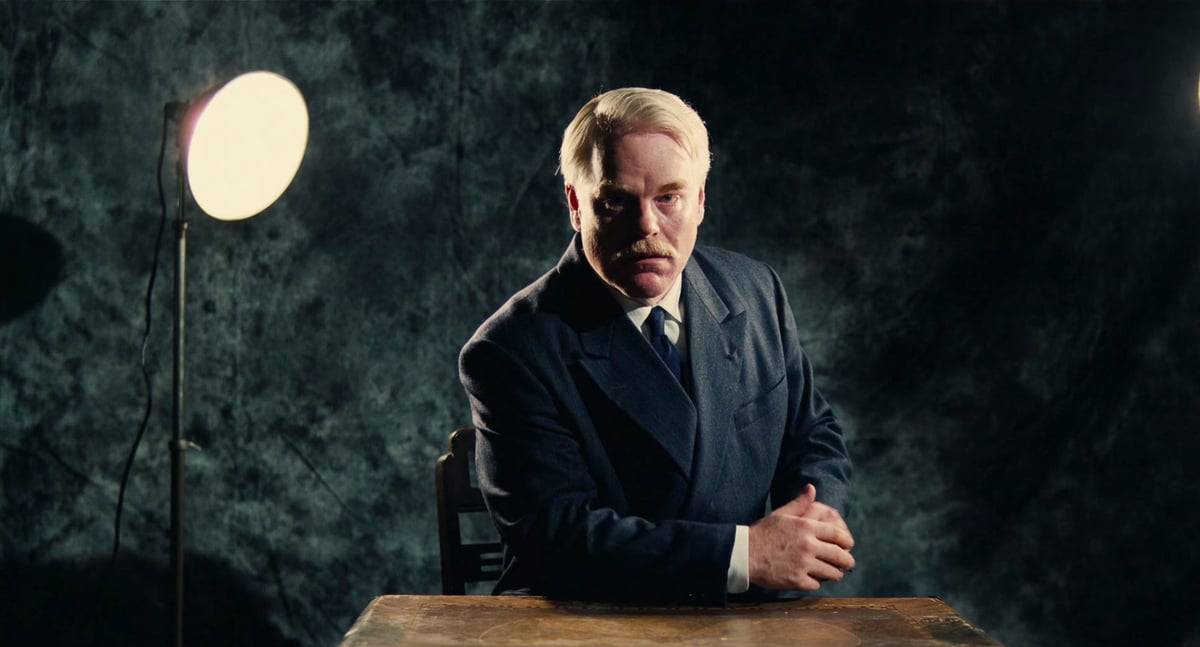
The Mission
- Roland Joffé — 1986
- You might also like McCabe & Mrs. Miller
I grew up Catholic and went to church every Sunday till I reached high school age. While none of religion stuck, the ideals, redemption stories and tales of sacrifice were pivotal allegories to inspire my morality. The Mission speaks to the conflict in any faith. What are the limits of true belief? If you believe in God, where does your own agency to fix the world stop? This is Jeremy Irons best performance in a career filled with best performances. Usually a firebrand, he plays Mendoza opposite to type with a quiet patience of someone who has already attained true peace. Interposed in between deep reflective moments are some of the most natural, grandiose cinematography that flattens the cathedrals of man. Many movies try to tell the colonization tale, but few find a way to balance the story enough to not fall into the traps inherit in its subject matter.
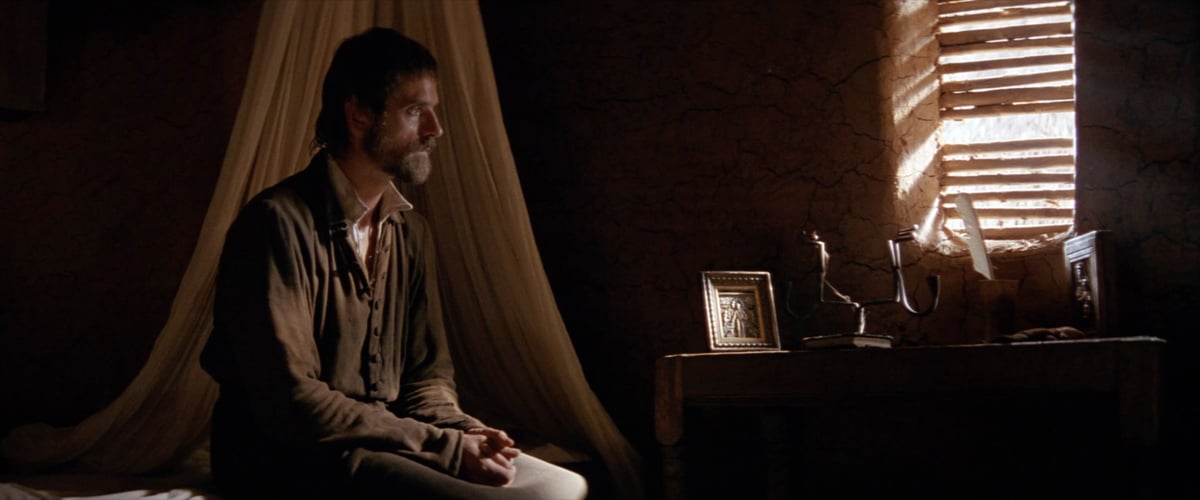
The Natural
- Barry Levinson — 1986
- You might also like Hoosiers
In my mind there are only four great sports movies: The Karate Kid, Rocky, Hoosiers and The Natural. The Natural wins in rare company because it knows that people that love sports see game events as somewhat miraculous. Fans will retell moments in groups almost as oral tradition, and its common to exaggerate moments to put your witness to the forefront. The Natural leans into these concepts, and makes its moments not only unbelievable, but actually impossible and driven by destiny. It perfectly frames American myth within America’s game. Most sports movies tell the origin of a great athlete. The Natural is filled with losers at the end of their career. They rise to the occasion after they’ve lost hope because they’ve finally witnessed something to break them of their cynicism.
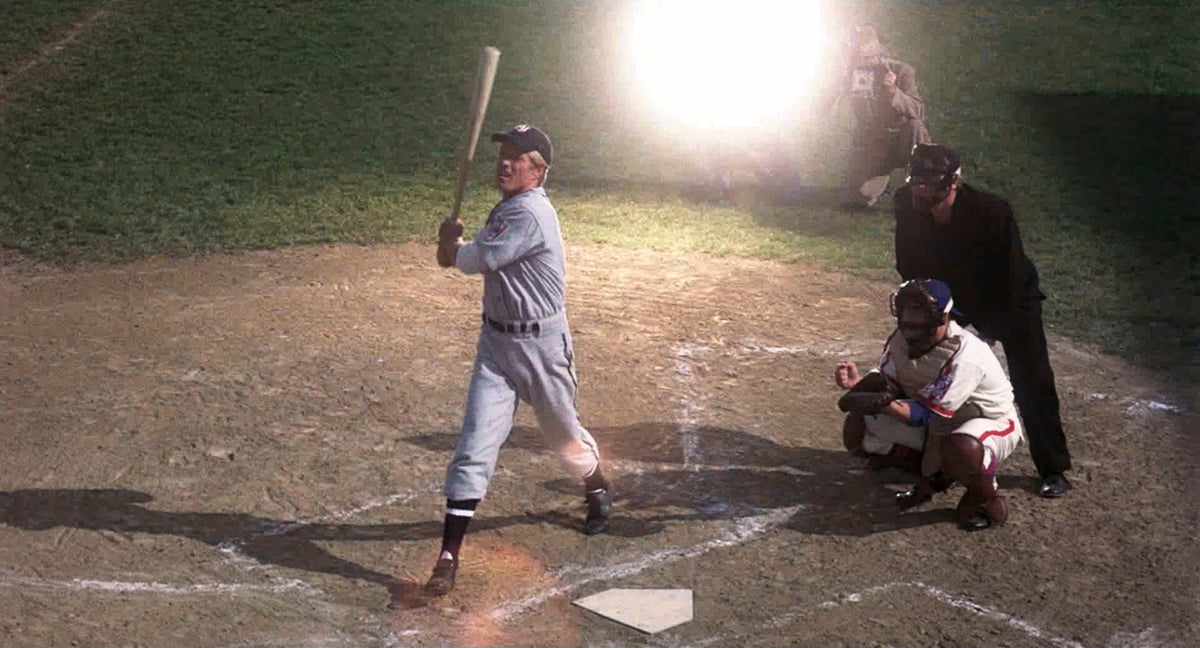
Network
- Sidney Lumet — 1976
- You might also like All the President’s Men
If forced to choose the one film that has remained my favorite the longest, it would most certainly be Network. Originally a satire, it has warped into prescient prophecy in the nearly 50-years since it first aired. Every character in the movie is broken in some way, and all of them look to the larger world as a foil for their brokeness. There is no better script written as far as I’m concerned and re-watches will open up a puzzle-box of self-reference that astounds. Although Diana dismisses television concepts based on cliche formulas, she is unable to stop herself from being a cliche herself. Network is brilliant in that it tells its cliches with the cards showing, like a magician who misdirects you with their honesty, only using it later to misdirect you a layer deeper. If someone asked me to describe all the problems with America, I’d point to Network. We love a train wreck and are unable to look away.
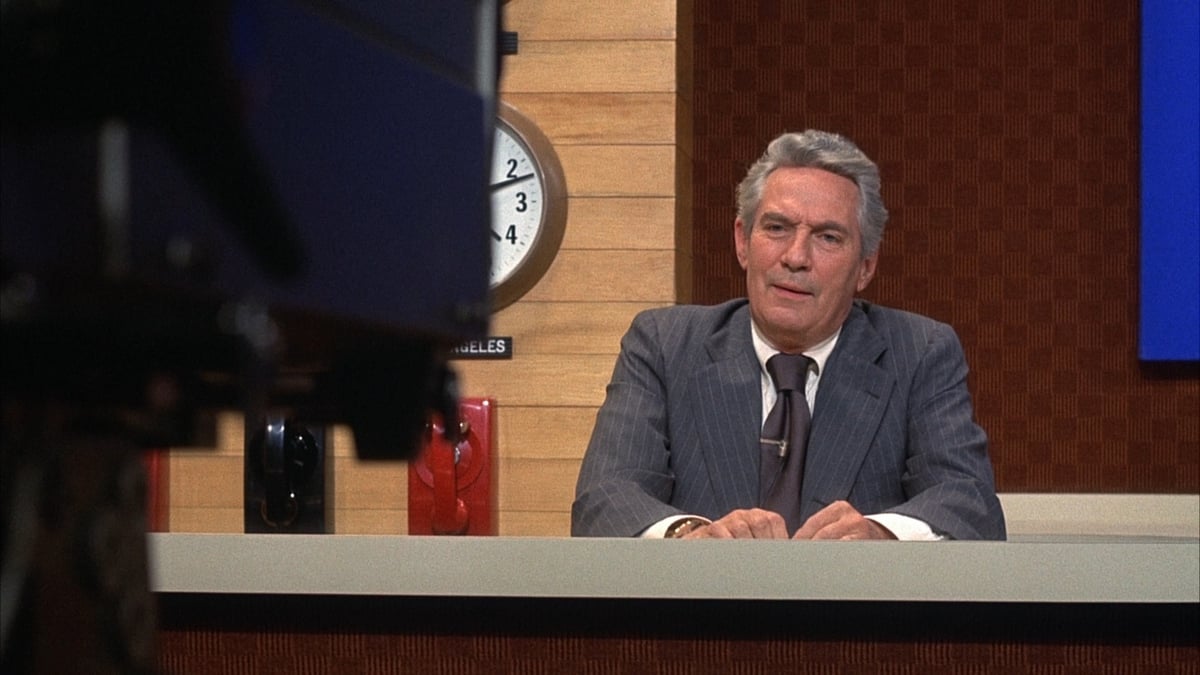
Planet of the Apes
- Franklin J. Schaffner — 1968
- You might also like Enemy Mine
In 1968 America in in the middle of The Vietnam war, Martin Luther King and Robert Kennedy are assasinated, and the Apollo 8 mission takes us to the moon for the first time. Planet of the Apes opens February of that year and somehow takes the storm of unrest from young people of that time and sneaks it into a clever science fiction film without anyone (possibly even star Charlton Heston) understanding what it’s really about. Written by Rod Serling of Twilight Zone fame, Planet of the Apes gives a fearful “What if” scenario for the world and shows us how history tends to repeat itself, regardless of species. There’s a million sequels that are fun in their own way, but the original film is the kind of inward-thinking science fiction that when first seen sort of knocks you down with its obvious twists.
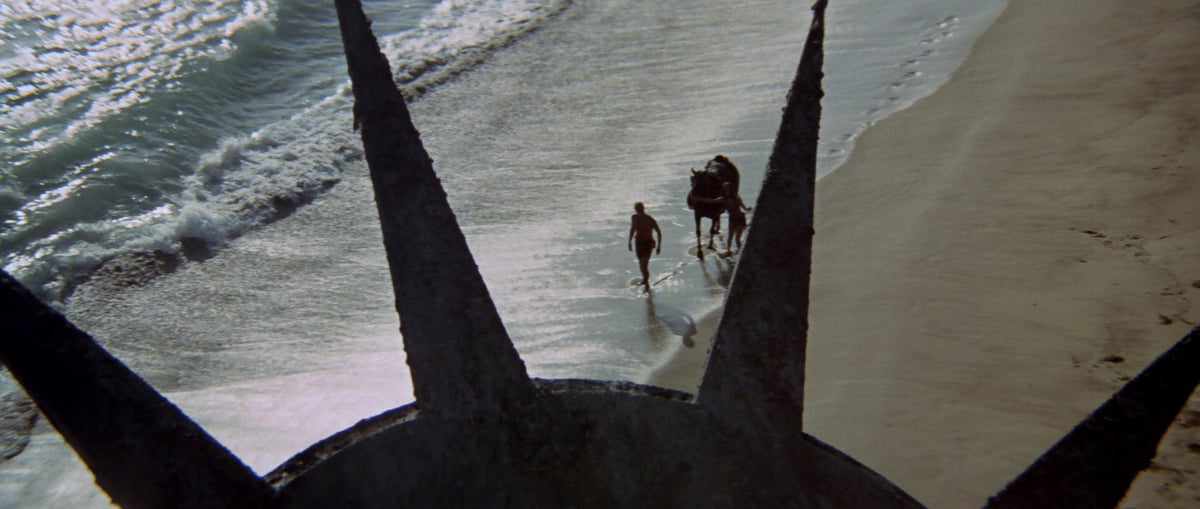
Rollerball
- Norman Jewison — 1975
- You might also like Marathon Man
I consider the original Rollerball a forgotten classic and I run into very few people that appreciate it. While most see it in a campy light because of the weirdness of its invented, violent sport, Rollerball is also a cerebral dystopian science fiction story where corporations have taken over nation states. It tries to explain how individuals might forget the name of whole cities or even history at large, and how a placated populace might be sedated by constant entertainment. With a little humor it could have been a biting satire, but is instead told with a mysterious, you’ll never really know, tone that keeps you slightly ill during an initial viewing. What happens at the end? Revolution? Is this a libertarian hero’s tale? What happens to the 14th century when the world’s supercomputer loses it? None of these questions are answered, but the world Rollerball creates and the questions it asks make for fantastic science fiction of a unique sort.
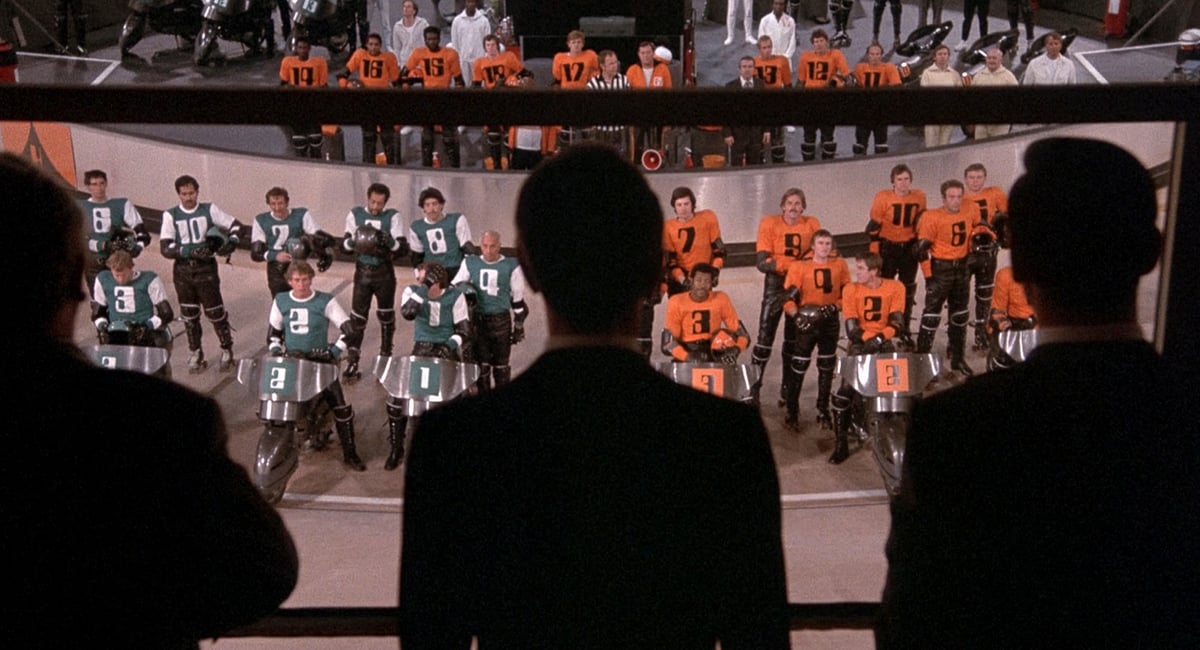
SLC Punk
- James Merendino — 1999
- You might also like Adventureland
SLC Punk presents tribes of young adults adrift in rebellion against the monotony of adulthood and responsibility. The tribes, be they punks, mods, rednecks of new wavers, are all plotting the same course, just wearing different uniforms. The realization that your subculture is essentially forcing even more strict rules of confirming with the crowd is something that every young adult eventually goes through. In the end it’s all bullshit, and you just need to make your way through a period of time to get through it. My favorite scene is the closer where a young Herion-Bob explains to Steve-o why punk music is better than the rock they’ve been listening to for years. He lays down the record needle and says, “It’s new”. SLC Punk is hilarious and one of the best coming of age stories I can recommend to those skeptical of authority.
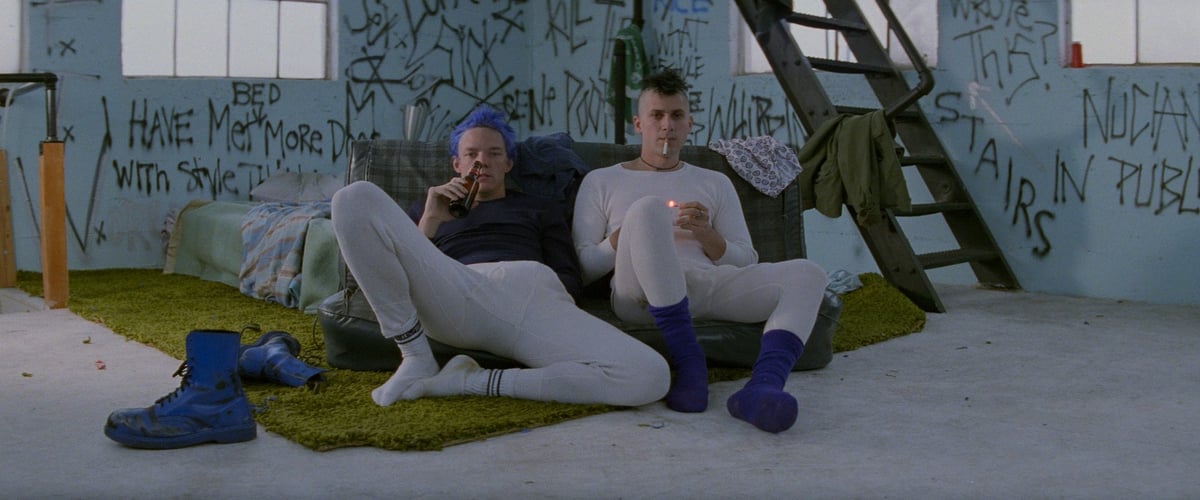
The Sting
- George Roy Hill — 1973
- You might also like Cool Hand Luke
There’s a certain number of movie fans that I can run my finger across my nose and make them immediately smile. Such are fans of The Sting, likely the best film in the con man genre. A good con involves letting the audience be a participant but watching what happens when the plan goes slightly off the rails. The Sting does this multiple times and does so without cheating the audience by hiding its intent.
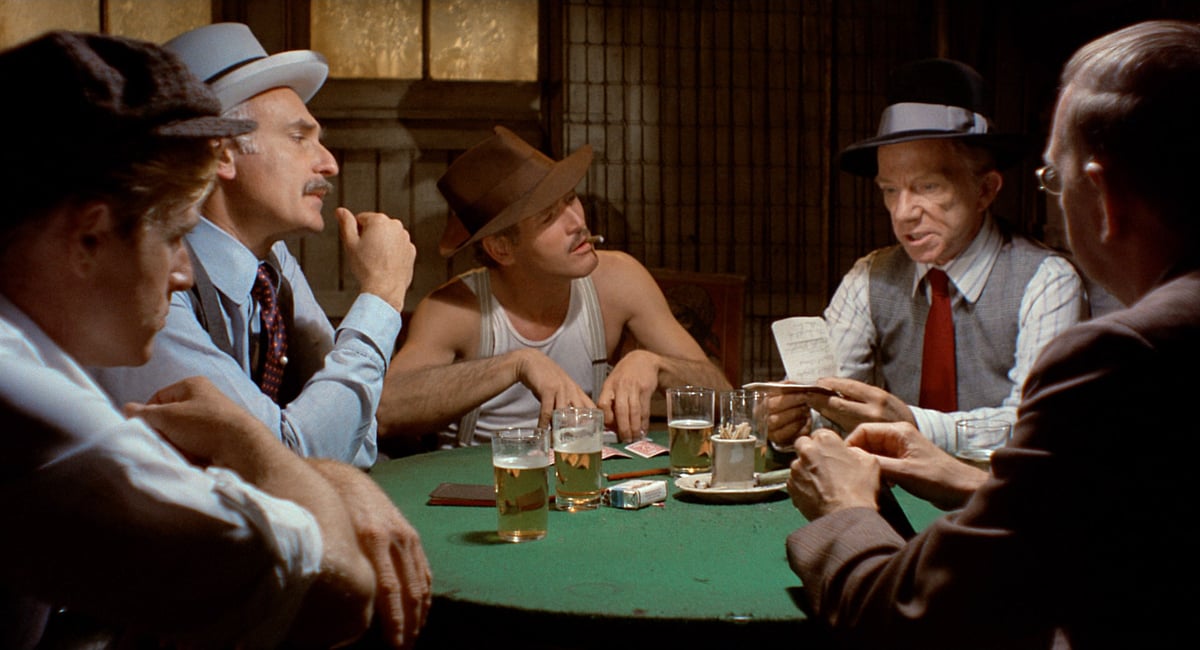
The Stunt Man
- Richard Rush — 1980
- You might also like The Lion in Winter
The Stunt Man is a film I’m most excited to hear someone else has seen. It usually means that person is a heavy cinemaphile and digs deep into the back catalog to find hidden gems that others may have missed. Once you see Peter O’Toole as Director Eli Cross, it’s hard to imagine him in any of his other roles. That’s pretty impressive considering he starred in Lawrence of Arabia. The Stunt Man is another movie about movies, and uses its behind the camera antics to provide a layer of inception to keep you off guard. It contains one of my favorite long shots of all time, with Eli pulling us along for a crane ride to describe that not everything we see is real. After all, “How tall is King Kong?”.
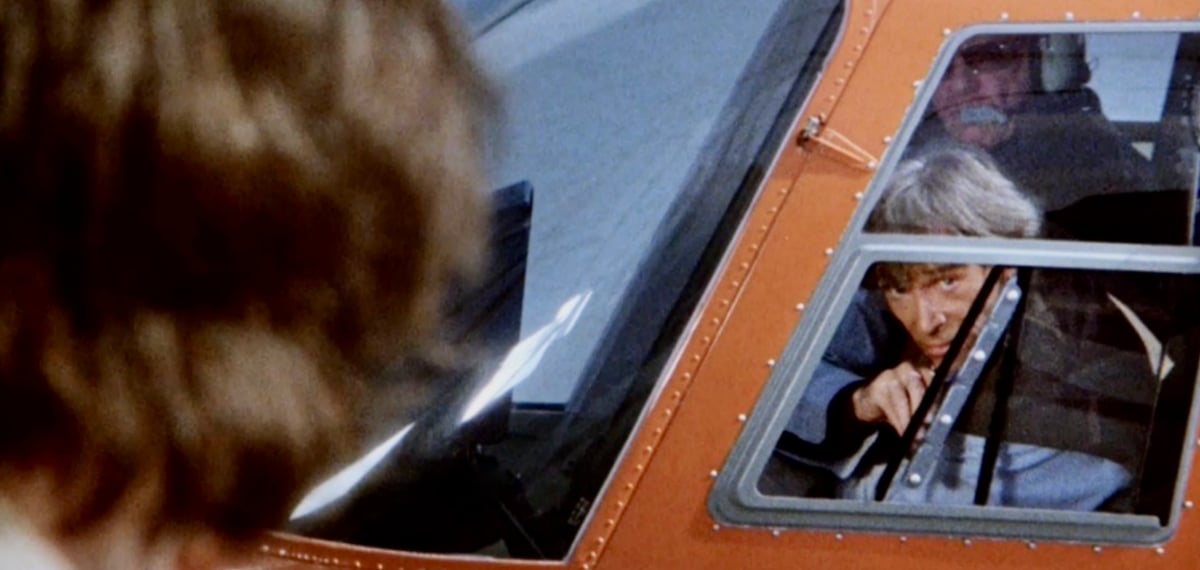
The Thing
- John Carpenter — 1982
- You might also like They Live
John Carpenter’s The Thing is a pinnacle for practical special effects. Something about its monster and sound design feels more gruesome than any CGI that would come after. Like Alien, it’s gotten better with age and the special effects feel slightly askew in a way to contribute to its mission to show that not everything is right with the inhabitants of an Antarctic science base during a deep blizzard. I like a movie that lets you know way ahead of time that a jump scare is about to happen, but messes with you all the same by not letting you know when it’s going to happen. The blood test scene is probably my favorite moment of horror in any film, and Carpenter’s minimal, brooding synth score keeps us uneasy throughout the runtime.
